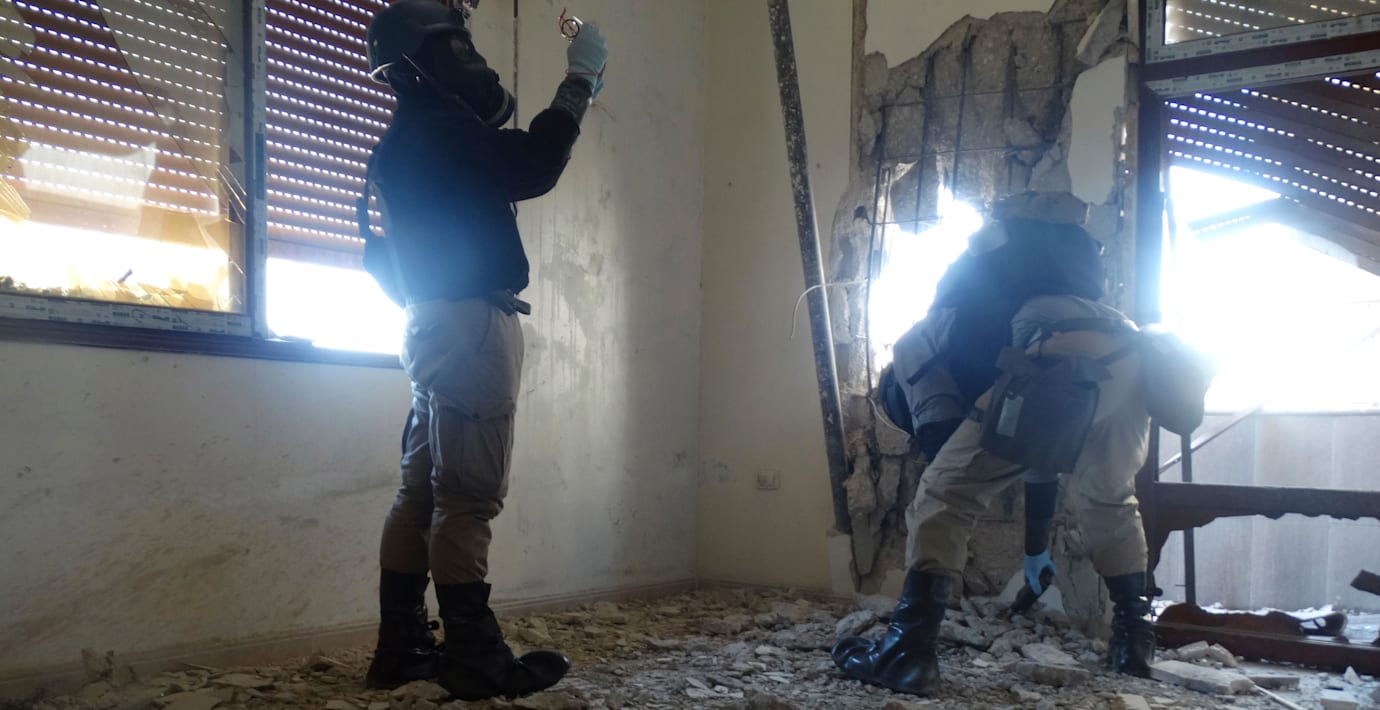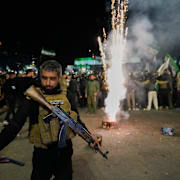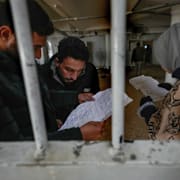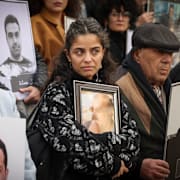
Misstänkt folkrättsbrott i Syrien utreds i Sverige
En förundersökning om misstänkt grovt folkrättsbrott i samband med gasattacker under syriska inbördeskriget har inletts i Sverige. Det rapporterar Dagens Nyheter.
– Vi har universell jurisdiktion och jag ser att det finns vissa utredningsåtgärder som vi kan vidta, inom svenskt rättsväsende, säger åklagare Hanna Lemoine till tidningen.
Efter saringasattacken i Ghouta, öster om Damaskus, polisanmäldes ett antal misstänkta krigsförbrytare av såväl människorättsorganisationer som syriska flyktingar bosatta i Sverige.
bakgrund
Saringasattacken i Ghouta
Wikipedia (en)
The Ghouta chemical attack occurred in Ghouta, Syria, during the Syrian civil war, in the early hours of 21 August 2013. Two opposition-controlled areas in the suburbs around Damascus were struck by rockets containing the chemical agent sarin. Estimates of the death toll range from at least 281 people to 1,729. The attack was the deadliest use of chemical weapons since the Iran–Iraq War.Inspectors from the United Nations Mission already in Syria to investigate an earlier alleged chemical weapons attack requested access to sites in Ghouta the day after the attack and called for a ceasefire to allow inspectors to visit the Ghouta sites. The Syrian Ba'athist government granted the UN's request on 25 August, and inspectors visited and investigated Moadamiyah in Western Ghouta the next day and Zamalka and Ein Tarma in Eastern Ghouta on 28 and 29 August.The UN investigation team confirmed "clear and convincing evidence" of the use of sarin delivered by surface-to-surface rockets, and a 2014 report by the UN Human Rights Council found that "significant quantities of sarin were used in a well-planned indiscriminate attack targeting civilian-inhabited areas, causing mass casualties. The evidence available concerning the nature, quality and quantity of the agents used on 21 August indicated that the perpetrators likely had access to the chemical weapons stockpile of the Syrian military, as well as the expertise and equipment necessary to safely manipulate large amount of chemical agents." It also stated that the chemical agents used in the Khan al-Assal chemical attack earlier in 2013 "bore the same unique hallmarks as those used in Al-Ghouta".The Syrian opposition as well as many governments, the Arab League and the European Union stated the attack was carried out by forces of Syrian President Bashar al-Assad. The Syrian and Russian governments blamed the opposition for the attack, the Russian government calling the attack a false flag operation by the opposition to draw foreign powers into the civil war on the rebels' side. Åke Sellström, the leader of the UN Mission, characterized government explanations of rebel chemical weapons acquisition as unconvincing, resting in part upon "poor theories".Several countries including France, the United Kingdom and the United States debated whether to intervene militarily against Syrian Ba'athist government forces. On 6 September 2013, the United States Senate filed a resolution to authorize use of military force against the Syrian military in response to the Ghouta attack. On 10 September 2013, the military intervention was averted when the Syrian government accepted a US–Russian negotiated deal to turn over "every single bit" of its chemical weapons stockpiles for destruction and declared its intention to join the Chemical Weapons Convention.In June 2018 the OPCW noted with concern that the Syrian Arab Republic had in reality neither declared nor destroyed all of its chemical weapons and chemical weapons production facilities.
Omni är politiskt obundna och oberoende. Vi strävar efter att ge fler perspektiv på nyheterna. Har du frågor eller synpunkter kring vår rapportering? Kontakta redaktionen



